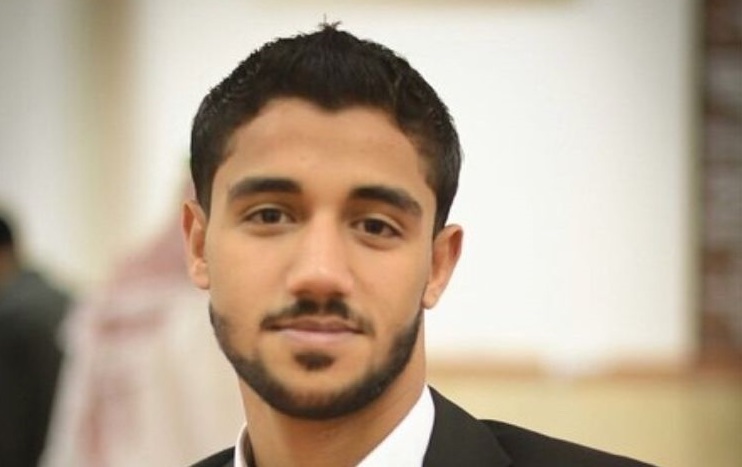Sayed Kadhem Ali is a 23-year-old carpenter who is being arbitrarily detained, tortured, and denied adequate healthcare in Bahrain’s Jau Prison.
On 30 June 2015, officers from the Gudaibiya police station arrested Sayed at Bahrain International Airport while on his way to Kuwait. These officers also raided Sayed’s home without a search warrant while armed and dressed in civilian clothing. There were no signs of any official insignia on their clothes or vehicles. When Sayed was arrested, the officers did not inform Sayed of the charges against him.
After his arrest, an officer asked Sayed about the location of his phone. Sayed told him that it was at his old house, and when they arrived, the officer again asked Sayed where the phone was. Sayed told the officer that he did not know. The officer pushed Sayed to the ground and kicked him. One of the kicks hit Sayed’s ear, which caused a severe injury. After this incident, the officer claimed that Sayed had assaulted and attacked him. Sayed was then severely beaten on his body and face by a police officer in the Gudaibiya police station.
Sayed was sent to a doctor in Salmaniya hospital, where the doctor wrote a report about the injury to Sayed’s ear. However, the authorities have not made this report available to relevant parties like his family.
Sayed was charged in two separate cases: (1) unlawful gathering, rioting, and an assault on the Khamis police station; and (2) assault on a security officer after the arrest. On 9 February 2016, Sayed was sentenced to 10 years in prison for the first case, later reduced to five on appeal on 25 October 2016. Another appeal was held on 16 June 2018, where the five-year sentence was upheld. The judge suspended the second case until the first case was ruled on, and this will now be decided on 27 June 2018.
On 6 March 2017, Sayed’s family submitted a complaint to the Ministry of Interior (MoI) Ombudsman, which is mandated to investigate police wrongdoing. Despite the doctor’s documentation of Sayed’s injury, the Ombudsman reported that MoI personnel had committed no abuses in the case.
Sayed is currently serving his sentence in Jau Prison, where his health continues to deteriorate due to the facility’s poor living conditions. Sayed and other prisoners in Building 4 are isolated from the outside world for 23 hours a day, as they are only allowed one hour a day outside. In addition to ill treatment, Sayed has also been denied access to his lawyer. Officials at the Office of Public Prosecution, despite being aware of Sayed’s presence in in the building, have prevented the lawyer from meeting with him and have stated that there was no detainee with Sayed’s name in the facility.
While in Jau Prison, Sayed suffered from abnormal swelling of his nose and face, severe headaches, the inability to stand, and the inability to bear any kind of smell, as it causes him nausea and dizziness. Eventually, Sayed was transferred to the Al-Qala’a police clinic, which is better equipped than the Jau clinic and used primarily for MoI staff. The clinic performed an X-ray on Sayed’s nose, but the X-ray reportedly showed no signs of a broken bone. Sayed was then returned to the prison after receiving no treatment. He has reported that he cannot eat, vomits continuously, and suffers from pain in his stomach, back, and nose. He lost about a quarter of his weight in the month of May 2018.
Sayed was then presented for a second time to the Al-Qala’a police clinic on 27 May 2018, where he was finally transferred to the department of abdominal disease. He was diagnosed only for the continuous vomiting; the rest of his injuries were ignored. When Sayed went to the clinic, a doctor mocked Sayed and left him in the clinic from 5:00pm to 11:00pm without treatment. The doctors have used painkillers and intravenous drips to treat his symptoms, but Sayed has reported that these have begun to make him hallucinate. Sayed continues to show signs of memory weakness, lack of focus, and is unable to read anything that is more than a meter away.
In May 2018, Sayed’s family submitted another complaint to the MoI Ombudsman over his continued ill treatment and the deprivation of proper medication, including the sole provision of painkillers.
Bahrain’s actions against Sayed violate international law, including the Convention Against Torture and Other Forms of Cruel, Inhuman or Degrading Treatment or Punishment, the International Covenant on Civil and Political Rights (Articles 7, 9, and 14), and the International Convention on Economic, Social and Cultural Rights (Article 12). Bahrain is a party to each of these treaties.
ADHRB calls upon Bahrain to uphold its human rights obligations by annulling Sayed’s conviction and ensuring that any subsequent trial is consistent with due process and fair trial rights. We urge the authorities to investigate claims of torture and ill treatment by prison officials and to hold these officials accountable. We also call upon the authorities to provide sufficient medical treatment to Sayed and to keep Sayed’s family informed of the status of their complaints.





